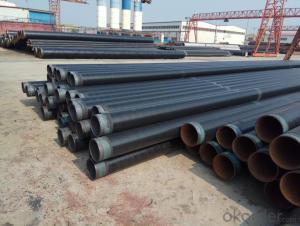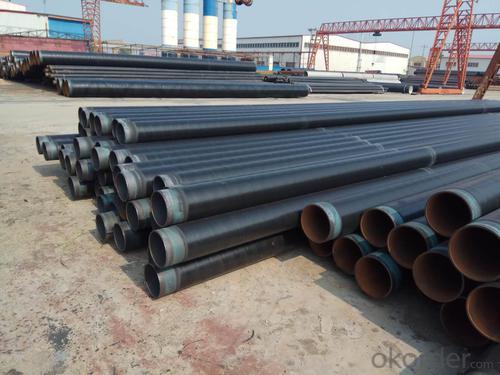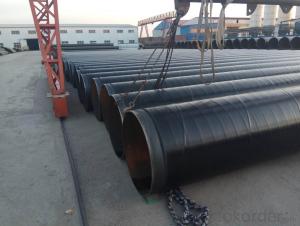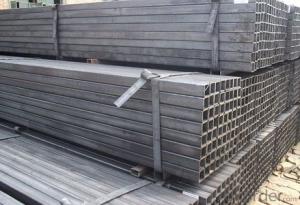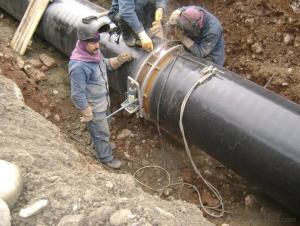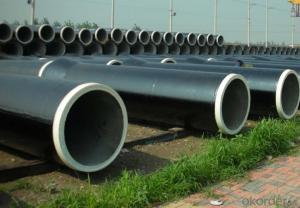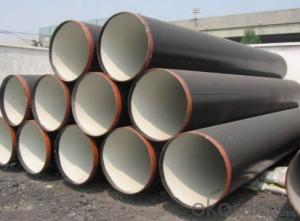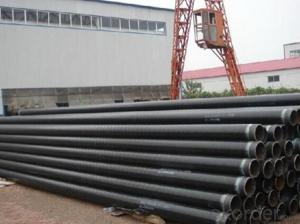Gas pipeline 3pe anti-corrosion steel pipe
- Loading Port:
- Tianjin
- Payment Terms:
- TT OR LC
- Min Order Qty:
- 33 m.t
- Supply Capability:
- 43544 m.t/month
OKorder Service Pledge
OKorder Financial Service
You Might Also Like
Specification
9711.2 gb 9711.1 spiral steel pipe, spiral steel pipe or spiral steel pipe, material classification: 16 mn material spiral steel pipe, Q345B spiral steel pipe, L245 spiral steel pipe, L360 spiral steel pipe, X40 - X80 spiral steel pipe, main USES, sewage treatment with spiral steel pipe, water purification with spiral steel pipe, water plant with spiral steel pipe, plant chemical enterprise with spiral steel tube pole, nuclear power with the spiral steel pipe, flammable liquid with spiral steel pipe, non combustible liquid with spiral steel pipe, gb spiral steel pipe, oil, or SY/T5037 spiral steel pipe. The product is made of hot rolled steel strip, often made by spiral forming and automatic submerged arc welding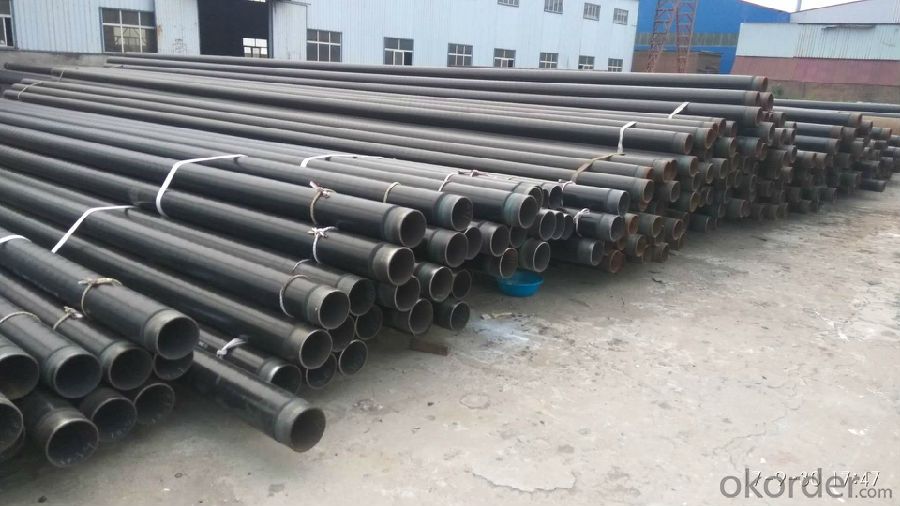
The trend of the spiral steel pipe market demand both rapid and random growth will not change fundamentally. Whether the spiral steel pipe market can maintain the rapid development of the hub depends on the change of demand. Macro economy is regulated by the policy level, which will slow down the market growth rate in the future
The main raw material is iron water plus scrap steel. The content of sulphur and phosphorus in steel is higher than that of high-quality carbon structural steel. Generally, sulphur is less than 0.050% and phosphorus is less than 0.045%. The content of other alloy elements brought into the steel by raw materials, such as chromium, nickel and copper is generally no more than 0.30%. According to the composition and performance requirements, the grades of such steel are indicated by the steel grades Q195, Q215A, B, Q235A, B, C, D, Q255A, B and Q275.
Note: "Q" is the upper capital character of the Chinese phonetic alphabet of the yield of "qu", and the subsequent number is the value of the minimum yield point (xun s) of the brand, and the subsequent symbol is divided into A, B, C and D according to the content of the steel impurity elements (sulphur and phosphorus) from high to low and accompanied by the changes of carbon and manganese elements.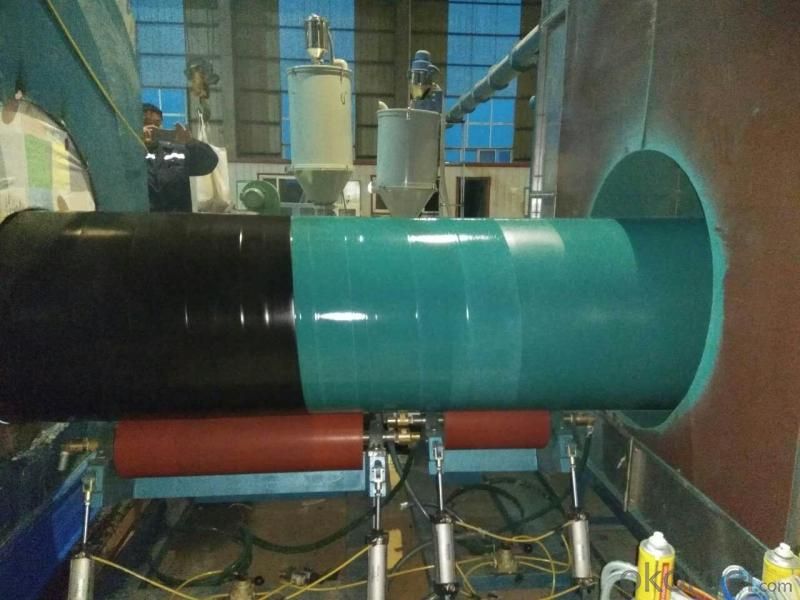
In gb700-88 standard, carbon structural steel Q235 is divided into four grades of A, B, C and D according to the metallurgical quality. Each grade of steel contains 0.3 percent of Si content. The difference lies in the difference of carbon content, sulfur content and phosphorus content. The carbon content of AB grade is 0.14%~0.22% and 0.12%~0.20%, the carbon content of CD grade is 0.18% and 0.17% at the same time, the Mn content of A grade is the smallest, and the content of d-grade SP is the smallest.
- Q: Can steel pipes be used for wastewater disposal?
- Yes, steel pipes can be used for wastewater disposal. Steel is a durable and corrosion-resistant material, making it suitable for transporting and disposing of wastewater safely and efficiently.
- Q: Can steel pipes be used for flagpoles?
- Yes, steel pipes can be used for flagpoles.
- Q: How are steel pipes used in the manufacturing of boilers and heat exchangers?
- Steel pipes are used in the manufacturing of boilers and heat exchangers primarily for their excellent strength, durability, and heat resistance properties. These pipes are used to carry hot fluids and gases, such as water and steam, throughout the boiler or heat exchanger system. The steel pipes provide a reliable and efficient means of transferring heat and maintaining the desired temperature within the system. Additionally, their corrosion resistance ensures long-lasting performance, making them an essential component in the manufacturing of boilers and heat exchangers.
- Q: How can two smooth steel pipes be joined? The size of the two pipe is different (except for welding)
- Butt fastener: used for connecting two steel pipe jointsThin-walled stainless steel pipe, the national standard consists of three parts, respectively on the thin stainless steel pipe connection, the sealing ring of raw materials of various specifications of O type thin wall stainless steel pipe diameter and wall thickness of pipe and rubber have clear requirements, in order to ensure the quality of the whole pipeline, pipeline safety and guarantee system durability. The connection mode is clamp type and ring type.
- Q: How are steel pipes used in fire protection systems?
- Steel pipes are an integral part of fire protection systems, primarily used for the distribution of water or other fire suppressants in buildings. These pipes are known for their strength, durability, and resistance to high temperatures, making them ideal for withstanding the intense conditions of a fire. In fire protection systems, steel pipes are commonly used to create a network of pipes that deliver water to sprinkler heads or fire hydrants throughout a building. This network ensures that water is readily available to suppress or extinguish a fire in case of an emergency. One of the key advantages of steel pipes in fire protection systems is their ability to withstand the high pressure and flow rates required for effective fire suppression. Steel pipes can handle the forceful water flow needed to quickly and efficiently distribute water to the affected areas, helping to control and extinguish the fire as soon as possible. Additionally, steel pipes are resistant to corrosion, which is essential for maintaining the integrity of the fire protection system over time. Corrosion can weaken pipes, leading to leaks or even complete failure, which can be catastrophic in a fire situation. Steel pipes, however, have a longer lifespan and require less maintenance compared to other pipe materials, ensuring the system remains reliable and functional for years to come. Furthermore, steel pipes are often used in fire protection systems due to their fire resistance properties. Steel is inherently fire-resistant, meaning it can withstand high temperatures without deforming or losing its structural integrity. This is crucial in fire protection systems as it allows the pipes to remain intact and continue delivering water even in the midst of a fire, ensuring the safety of occupants and minimizing damage to the building. In summary, steel pipes play a vital role in fire protection systems by ensuring a reliable and efficient distribution of water or fire suppressants. Their strength, durability, resistance to high temperatures, and corrosion resistance make them an ideal choice for effectively combating fires and safeguarding lives and property.
- Q: How are steel pipes protected against corrosion?
- Steel pipes are protected against corrosion through various methods such as coating them with protective materials like paint or epoxy, galvanizing them with a zinc coating, or using cathodic protection techniques such as sacrificial anodes or impressed current systems.
- Q: What are the advantages of using steel pipes in construction?
- There are several advantages of using steel pipes in construction. Firstly, steel pipes are incredibly strong and durable, providing excellent structural integrity and long-term reliability. They can withstand high pressure and heavy loads, making them suitable for various applications such as water and gas transportation, oil pipelines, and building frameworks. Secondly, steel pipes have a high resistance to corrosion, which ensures longevity and reduces maintenance costs. Additionally, steel pipes are versatile and can be easily customized to meet specific project requirements, as they come in various sizes, shapes, and thicknesses. Lastly, steel pipes are environmentally friendly, as they are recyclable, reducing the overall carbon footprint of construction projects.
- Q: What are the different types of steel pipe valves?
- There are several types of steel pipe valves, including gate valves, globe valves, ball valves, check valves, and butterfly valves. Each type of valve serves a specific purpose and has its own unique features and applications in various industries.
- Q: Can steel pipes be used for industrial ventilation systems?
- Yes, steel pipes can be used for industrial ventilation systems. They are commonly used due to their durability, resistance to corrosion, and ability to withstand high temperatures. Steel pipes are also strong and can handle the pressure required for efficient airflow in industrial environments.
- Q: How are steel pipes protected against soil movement or settlement?
- Steel pipes can be protected against soil movement or settlement through the use of various measures such as proper design and installation techniques, including the use of appropriate bedding materials, backfilling with compacted soil, and the addition of protective coatings or linings. Additionally, the implementation of geotechnical investigations and monitoring systems can help identify potential soil movement or settlement issues in advance, allowing for proactive measures to be taken to mitigate any potential damage to the steel pipes.
Send your message to us
Gas pipeline 3pe anti-corrosion steel pipe
- Loading Port:
- Tianjin
- Payment Terms:
- TT OR LC
- Min Order Qty:
- 33 m.t
- Supply Capability:
- 43544 m.t/month
OKorder Service Pledge
OKorder Financial Service
Similar products
Hot products
Hot Searches
Related keywords
